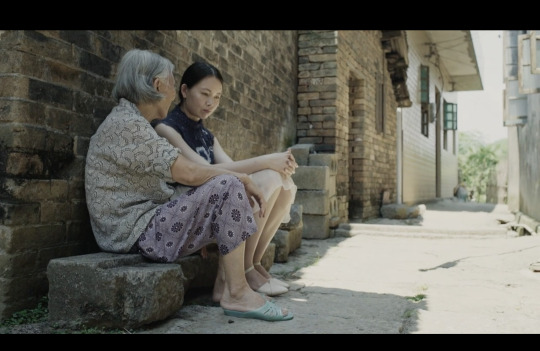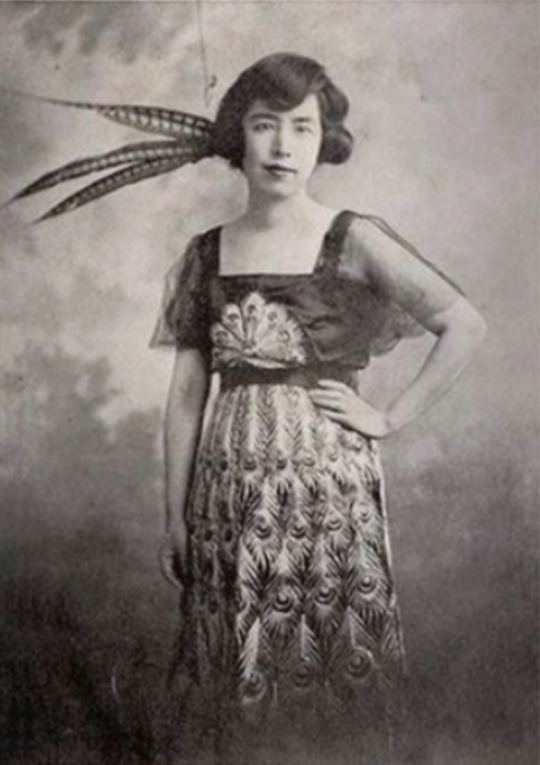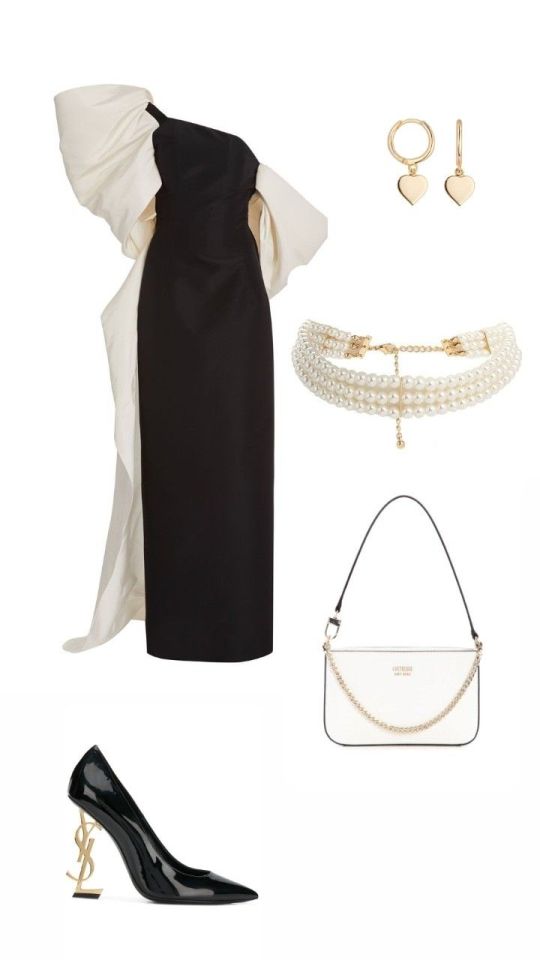#chinese feminism
Explore tagged Tumblr posts
Text




some QRTs from the original thread which is of course also worth a read. the Chinese movement 6B4T is frequently subject to censorship online.



695 notes
·
View notes
Text
Chapter 60: Misogyny triumphs; something something Flaming Mountain

Well, this chapter was pretty much a misogynist’s fantasy.
I’m not going to spell it out. I trust that everyone here has the capacity to see it for themselves if they want to. So let me express my feelings about this chapter thus:




If you need some brain bleach after that chapter, may I recommend one of Jung Chang’s books, or maybe watching a documentary about Nushu, the secret written language created by Chinese women for women only.

Baaaaai! See you next week!
@journeythroughjourneytothewest
—
Image credits: The usual spiel. The images above are either AI, or random pictures from the web, or a Frankenstein of both; some modified, some not. They are not original. The pre-existing images should turn up with reverse googling or have links embedded, but feel free to ask and I’ll dig up sources.
#jtjttw submission#jttw reading group#jttw book club#jttw feminism#asianfeminism#asian feminism#chinese feminism
6 notes
·
View notes
Text
“Noa Argamani was treated well!”
She was kept as a hostage slave in a wealthy family’s apartment, forced to clean it whenever they knocked without warning, for EIGHT MONTHS. Just because they fed her does not mean she wasn’t a hostage and a slave. Her mother also has terminal cancer and was afraid she was never going to see her again.
If you start justifying human rights abuses against women, Jews, and Asians (she is half Chinese) because they are Israeli, you were never against antisemitism, misogyny, or wanted to stop Asian hate.
You can support both Palestinian and Israeli civilian lives.
#israel#Gaza#noa argamani#bring them home now#antisemitism#antisemitic#stop asian hate#Asian#Chinese#social justice#justice#human rights#slavery#hostage#Jewish#jumblr#Jew#Jews#antisemite#classism#classist#left#leftist#politics#political#feminism#feminist#intersectional feminism#ceasefire#ceasfire now
1K notes
·
View notes
Text
Unfortunately, this woman’s horrific experience--surviving attempted murder as a baby and having subsequent health issues--is not an isolated incident in China. (I wish I could find the Tumblr thread I had reblogged on this topic, but alas, Tumblr’s search feature sucks.) Committing infanticide, usually female infanticide, by using needles, is a longstanding practice. I’ve only heard of one case that involved a male baby, and even then it was noted for being unusual:
“Police have conducted an attempted murder investigation and confirmed it was not the first incident of its kind although it was usually only girl children who fall victim to such attacks.
In Northeast China in particular there is a superstition the pushing and needle into the body of a girl child will guarantee that the next child is a male.”
--Natalie Evans, Irish Mirror
Nothing demonstrates the pervasiveness and violence of sex-based oppression--that women and girls face discrimination as a sex class--quite like a culture that cripples and mutilates female children, hampering their ability to walk, for a thousand years, and then killing their descendants with needles shoved into their vital organs. This isn’t to say that China is unique and singular in its woman-hating, only that some of its particular expressions of misogyny lay the whole violent system of patriarchy bare. (Trust me, I could go off on American gynecology, and how medicine in the West in general, is absolutely horrific to women, but that’s for another post.)
https://www.hindustantimes.com/world/china-jails-dad-who-tried-to-kill-daughter-with-needles/story-ETOGeuRi96v8y0UiMkL4GM.html
http://web.archive.org/web/20141027151356/https://www.scmp.com/news/china/article/1625647/woman-suspected-pushing-needles-her-baby-nieces-body-kills-herself
https://www.hindustantimes.com/world/chinese-kin-suspected-over-needle-in-girl-s-brain/story-O2VYTD4vKgcc8NCw5btFYK.html
https://www.inquisitr.com/2407812/chinese-woman-had-two-inch-needle-in-her-brain-for-46-years-case-highlights-grim-practice-of-female-infanticide-in-china
https://www.irishmirror.ie/news/world-news/baby-china-needle-pushed-body-3000848
hearing these stories from the aftermath of the one child policy really just fills me with so much dread
i know she is playing off this traumatic event as a joke but i just cant laugh :(
2K notes
·
View notes
Text
[Hanfu · 漢服]The relationship between women in history is not just love rivals,
“but also thousands of years later, everyone knows that it is me and you.”
Let's get to know about them/她们 in China history.
1.【Han Dynasty】:Princess Jieyou (解忧公主) & Feng Liao (馮嫽)
Princess Jieyou (Chinese: 解忧公主; 121 BC – 49 BC), born Liu Jieyou (Chinese: 刘解忧), was a Chinese princess sent to marry the leader of the Wusun kingdom as part of the Western Han Chinese policy of heqin(和亲).
As the granddaughter of the disgraced Prince Liu Wu (劉戊) who had taken part in the disastrous Rebellion of the Seven States,her status was low enough that she was sent to replace Princess Liu Xijun (劉細君) after her untimely death and marry the Wusun king Cunzhou (岑陬).
Jieyou lived among the Wusun for fifty years and did much work to foster relations between the surrounding kingdoms and the Han. She was particularly reliant upon her attendant, Feng Liao, whom she dispatched as an emissary to Wusun kingdoms and even to the Han Court. She faced opposition from pro-Xiongnu members of the Wusun royalty, particularly Wengguimi’s Xiongnu wife. When word came that the Xiongnu planned to attack Wusun, she convinced her husband to send for aid from the Han Emperor. Emperor Wu of Han sent 150,000 cavalrymen to support the Wusun forces and drive back the Xiongnu.
In 51 BCE at the age of 70, Jieyou asked to be allowed to retire and return to the Han. Emperor Xuan of Han agreed and had her escorted back to Chang'an where she was welcomed with honor. She was given a grand palace with servants usually reserved for princesses of the imperial family. In 49 BCE, Jieyou died peacefully.
Feng Liao (馮嫽)
Feng Liao (馮嫽) was China's first official female diplomat,[citation needed] who represented the Han dynasty to Wusun (烏孫), which was in the Western Regions. It was a practice for the Imperial Court to foster alliances with the northern tribes via marriage, and two Han princesses had married Wusun kings.
Feng Liao was the maidservant of Princess Jieyou (解憂公主), who was married off to a Wusun king. Feng herself later married an influential Wusun general, whose good standing with Prince Wujiutu (烏就屠) of the kingdom later proved beneficial to the Han dynasty.
When Prince Wujiutu seized the throne of Wusun in 64 BC, after his father died, there was fear in the Imperial Court of Han that Wujiutu, whose mother was Xiongnu, would allow Wusun to become Xiongnu's vassal.
Zheng Ji, Governor of the Western Regions, recalled that Feng Liao had married into Wusun and with her familiarity of the Wusun customs, she was a prime candidate to persuade Wujiutu to ally his kingdom with Han. Wujiutu acceded and Emperor Xuan of Han (漢宣帝) sent for Feng. He praised her for her judgement and diplomacy, and appointed her as the official envoy to Wusun.
Wujiutu was conferred the title "Little King of Wusun" while his brother, the son by a Han princess, was named "Great King of Wusun". Wusun was divided between the two kings and tensions in that region were eased.
※Xiongnu: Xiongnu: A nomadic tribe that has occupied northern China for a long time. Later it gradually became a state. It harassed the borders of the Han Dynasty for a long time and robbed supplies.
------
With their efforts, the Wusun Kingdom gradually tended to support the Han Dynasty, and the Xiongnu's defeat in China also began.
------
2.【Tang Dynasty】:Shangguan Wan'er(上官婉儿)&Princess Taiping (太平公主)
Shangguan Wan'er/上官婉儿 (664 – 21 July 710) was a Chinese politician, poet, and imperial consort of the Wu Zhou and Tang dynasties. Described as a "female prime minister,"Shangguan rose from modest origins as a palace servant to become secretary and leading advisor to Empress Wu Zetian of Zhou. Under Empress Wu, Shangguan exercised responsibility for drafting imperial edicts and earned approbation for her writing style. She retained her influence as consort to Wu's son and successor, Emperor Zhongzong of Tang, holding the imperial consort rank of Zhaorong (昭容). Shangguan was also highly esteemed for her talent as a poet.Shangguan was also highly esteemed for her talent as a poet. In 710, after Emperor Zhongzong's death, Shangguan was killed during a palace coup that ended the regency of Empress Dowager Wei.
Princess Taiping (太平公主)lit. "Princess of Great Peace", personal name unknown, possibly Li Lingyue (李令月) (after 662 – 2 August 713) was a royal princess and prominent political figure of the Tang dynasty and her mother Wu Zetian's Zhou dynasty. She was the youngest daughter of Wu Zetian and Emperor Gaozong and was influential during the reigns of her mother and her elder brothers Emperor Zhongzong and Emperor Ruizong (both of whom reigned twice), particularly during Emperor Ruizong's second reign, when for three years until her death, she was the real power behind the throne.
She is the most famous and influential princess of the Tang dynasty and possibly in the whole history of China thanks to her power, ability and ambition. She was involved in political difficulties and developments during the reigns of her mother and brothers. Indeed, after the coup against Empress Dowager Wei, she became the real ruler of Tang. During the reign of Emperor Ruizong, she was not restricted by anything, the emperor issued rulings based on her views and the courtiers and the military flattered her and majority from every civil and military class joined her faction, so her power exceeded that of the emperor.
Eventually, however, a rivalry developed between her and her nephew, Emperor Ruizong's son, Crown Prince Li Longji. Both of them were hostile in power-sharing and they fought for the monopoly over power. After Emperor Ruizong yielded the throne to Li Longji (as Emperor Xuanzong) in 712, the conflict came to the political forefront, and openly, the court became a manifestation of conspiracy rather than the administration of the empire; in 713, Emperor Xuanzong, according to historical records, believing that she was planning to overthrow him, acted first, executing a large number of her powerful allies and forcing her to commit suicide.
------
The relationship between Shangguan Wan'er and Princess Taiping has always been written as "enemies" in official history, but with the phrase "千年万岁,椒花颂声", their friendship that has been buried for thousands of years was revealed.
The"千年万岁,椒花颂声" sentence comes from the epitaph written by Princess Taiping for Shangguan Wan'er. The original text is: "潇湘水断,宛委山倾,珠沉圆折,玉碎连城。甫瞻松槚,静听坟茔,千年万岁,椒花颂声”
Translation: Now that you are far away, the sky and the earth will lose their color. I'm afraid that all I can do in the future is to sit and look at the tea tree in front of your tomb. Maybe I can hear your voice again when I stand within an inch of the tomb. But this is a delusion after all, a quiet tomb, no beautiful face, a empty place of death. I hope that in a thousand or ten thousand years, there will still be people like me who remember you.
------
3.【Late Qing Dynasty】:Lü Bicheng(呂碧城) & Qiu Jin (秋瑾)

Lü Bicheng(呂碧城)also known as Alice Pichen Lee(1883–1943) was a Chinese writer, activist, newspaper editor, poet and school founder. She has been mentioned as one of the top four women in literature from the early Republic of China.
When she was four, her father retired to Lu'an, Anhui. She lived a life of comfort until the age of 12, when her father died in 1895. Because Lü Fengqi had no male heir, relatives of the Lü lineage contested for his inheritance, and Yan Shiyu and her four daughters were forced to move to Lai'an County to live with her natal family. When she was nine, Lü Bicheng was betrothed to a Wang family, but as her own family fortune declined, the Wang family broke off the marriage contract, giving the young Bicheng the stigma of a "rejected woman". The resulting emotional scar is often considered a major factor in her later decision to never marry.[8] Her widowed mother and the Lü girls were not well treated at the Yan family in rural Anhui. When Lü was 15 or 16, Yan Shiyu sent her to live with her maternal uncle Yan Langxuan (嚴朗軒), who was the salt administrator in Tanggu, the port city outside the northern metropolis of Tianjin. Her sister Huiru also joined her later.
During her stay in Tanggu, Qing China went through the tumultuous period of the failed Hundred Days' Reform of 1898, which brought about increasing awareness of women's education, and the Boxer Rebellion of 1900. In 1904, Mrs. Fang, the wife of her uncle's secretary, invited Lü Bicheng to visit a girls' school in Tianjin, but her uncle prevented her from going and severely reprimanded her. The next day, she ran away from her uncle's home, and took the train to Tianjin with no money or luggage. She wrote a letter to Mrs. Fang, who was staying at the dormitory of the Ta Kung Pao newspaper. Ying Lianzhi, the Catholic Manchu nobleman who founded the newspaper, read the letter and was so impressed by it that he made her an assistant editor. Lü Bicheng wrote a "progressive" ci that she had previously written, set to "A River Full of Red" ("Manjianghong") usually used to express heroic emotions. Ying transcribed the whole song in her diary and published it in L'impartial two days later. At the time, it was sensational for a woman to write for an influential national newspaper such as Ta Kung Pao. She was 21 years old. She used Ta Kung Pao to promote feminism and became a well-known figure.
Lü's ci poetry was published in the newspaper and it was very well received. She was the chief editor of the newspaper from 1904 to 1908. In 1904 she decided to improve education for girls. She had published her thoughts on women's rights and the general editor of the newspaper introduced her to Yan Fu who was an advocate for Western ideas. The Beiyang Women's Normal School was established that same year. At 23 Lü took on the job of principal of the school she had founded two years before. At first this school found it difficult to find girls who qualified for secondary education and students were brought in from Shanghai to make up the numbers.
Lü knew the revolutionary Qiu Jin and they had similar objectives but Lü did not join her in Japan when she was invited as she was unsure whether women should meddle in politics. She was then chosen to be secretary to Yuan Shikai, one of the most powerful people in China. When he set out to declare himself emperor of China she left, like many of his followers, and abandoned him.
--

Qiu Jin (秋瑾)8 November 1875 – 15 July 1907,was a Chinese revolutionary, feminist, and writer.Her sobriquet name is Jianhu Nüxia (Chinese: 鑑湖女俠 lit. 'Woman Knight of Mirror Lake').
Qiu was born into a wealthy family. Her grandfather worked in the Xiamen city government and was responsible for the city's defense. Zhejiang province was famous for female education, and Qiu Jin had support from her family when she was young to pursue her educational interests. Her father, Qiu Shounan, was a government official and her mother came from a distinguished literati-official family. Qiu Jin's wealthy and educated background, along with her early exposure to political ideologies were key factors in her transformation to becoming a female pioneer for the woman's liberation movement and the republican revolution in China.
In the early 1900s, Japan had started to experience western influences earlier than China. As to not fall behind, the Qing government sent many elites to learn from the Japanese. Qiu Jin was one of these elites that got the chance to study overseas. After studying in a women's school in Japan, Qiu returned to China to participate in a variety of revolutionary activities; and through her involvement with these activities, it became clear how Qiu wanted others to perceive her. Qiu called herself 'Female Knight-Errant of Jian Lake' — the role of the knight-errant, established in the Han dynasty, was a prototypically male figure known for swordsmanship, bravery, faithfulness, and self-sacrifice — and 'Vying for Heroism'
Qiu Jin had her feet bound and began writing poetry at an early age. With the support from her family, Qiu Jin also learned how to ride a horse, use a sword, and drink wine—activities that usually only men were permitted to learn at the time.In 1896 Qiu Jin got married. At the time she was only 21, which was considered late for a woman of that time. Qiu Jin's father arranged her marriage to Wang Tingchun, the youngest son of a wealthy merchant in Hunan province. Qiu Jin did not get along well with her husband, as her husband only cared about enjoying himself.While in an unhappy marriage, Qiu came into contact with new ideas. The failure of her marriage affected her decisions later on, including choosing to study in Japan.
While still in Tokyo, Qiu single-handedly edited a journal, Vernacular Journal (Baihua Bao). A number of issues were published using vernacular Chinese as a medium of revolutionary propaganda. In one issue, Qiu wrote A Respectful Proclamation to China's 200 Million Women Comrades, a manifesto within which she lamented the problems caused by bound feet and oppressive marriages. Having suffered from both ordeals herself, Qiu explained her experience in the manifesto and received an overwhelmingly sympathetic response from her readers. Also outlined in the manifesto was Qiu's belief that a better future for women lay under a Western-type government instead of the Qing government that was in power at the time. She joined forces with her cousin Xu Xilin and together they worked to unite many secret revolutionary societies to work together for the overthrow of the Qing dynasty.
Between 1905 and 1907, Qiu Jin was also writing a novel called Stones of the Jingwei Bird in traditional ballad form, a type of literature often composed by women for women audiences. The novel describes the relationship between five wealthy women who decide to flee their families and the arranged marriages awaiting them in order to study and join revolutionary activities in Tokyo. Titles for the later uncompleted chapters suggest that the women will go on to talk about “education, manufacturing, military activities, speechmaking, and direct political action, eventually overthrowing the Qing dynasty and establishing a republic” — all of which were subject matters that Qiu either participated in or advocated for.
Life after returning to China
Qiu Jin was known as an eloquent orator who spoke out for women's rights, such as the freedom to marry, freedom of education, and abolishment of the practice of foot binding. In 1906 she founded China Women's News (Zhongguo nü bao), a radical women's journal with another female poet, Xu Zihua in Shanghai. They published only two issues before it was closed by the authorities. In 1907, she became head of the Datong school in Shaoxing, ostensibly a school for sport teachers, but really intended for the military training of revolutionaries[citation needed]. While teaching in Datong school, she kept secret connection with local underground organization—The Restoration Society. This organization aimed to overthrow the Manchu government and restore Chinese rule.
Death
In 1907, Xu Xilin, Qiu’s friend and the Datong school’s co-founder was executed for attempting to assassinate his Manchu superior. In the same year, the authorities arrested Qiu at the school for girls where she was the principal. She was tortured but refused to admit her involvement in the plot. Instead the authorities used her own writings as incrimination against her and, a few days later, she was publicly beheaded in her home village, Shanyin, at the age of 31. Her last written words, her death poem, uses the literal meaning of her name, Autumn Gem, to lament of the failed revolution that she would never see take place:
秋風秋雨愁煞人 (Autumn wind, autumn rain — they make one die of sorrow)
After Qiu Jin was killed, no one dared to collect her body. Lu Bicheng endured her grief and took great risks to bury her friend. The guarding Qing army learned that the woman who came to collect the corpse was Lu Bicheng, who was famous in China, and they had no choice but to do anything.
Qiu Jin's death caused Lu Bicheng to lose a rare confidant in life. She wrote many poems in memory of Qiu Jin, recalling this like-minded friend.
Later, Lü Bicheng wrote "The Biography of the Revolutionary Heroine Qiu Jin" in English, which was published in newspapers in New York, Chicago and other places in the United States. It caused a great response and not only made many people in the world know about Qiu Jin's legendary story, but also published it in newspapers in New York and Chicago. It also makes people understand the darkness and corrupt social status quo of the Qing Dynasty. Lu Bicheng used a pen of her own to record her friendship with Qiu Jin, and also fulfilled her promise to Qiu Jin to respond with the "battle of words"
————————
📸Video & 🧚🏻 Model:@荷里寒 & @阿时Ashi_
🔗Weibo:https://weibo.com/3618951560/NEZZnpQRq
————————
#chinese hanfu#china history#woman power#woman in history#hanfu#hanfu accessories#hanfu_challenge#chinese traditional clothing#china#chinese#han dynasty#tang dynasty#late qing dynasty#feminism#revolution#漢服#汉服#中華風#girl power#hanfu girl
385 notes
·
View notes
Text




April 17th, 2024 ; Shanghai
#george russell#f1#f1edit#*m#*mine#24#chn24#chinese gp 2024#china#(in a way thats concerning to feminism etc.................)#(PUT THIS MAN IN A ROMCOM IMMEDIATELY.)
149 notes
·
View notes
Text

Party outfit ✨
#aesthetic#trending#beauty#artists on tumblr#fashion#art#beautiful#outfit#beautiful model#girl outfit#chinese fashion#pink aesthetic#fairy tail#fashion trends#feminism#viral trends
11 notes
·
View notes
Text
Wen Qing : GIIIIRL YOU SO WELL DO YOU LIKE GIRLS? Jiang Yanli: Yesss girl I'm a feminist
#jiangyanli#wenqing#mo dao su zhi#modao#chinese novel#femin#hc#shipping meme#shippgir#yanlixqing#mxtx fandom#mxtx mdzs#tumblr memes#femalecaracter
44 notes
·
View notes
Text
By the twelfth century Buddhism, protofeminism, and economic growth had transformed older gender roles.
"Why the West Rules – For Now: The patterns of history and what they reveal about the future" - Ian Morris
#book quote#why the west rules – for now#ian morris#nonfiction#12th century#chinese history#buddhism#feminism#economic growth#transformation#gender roles
4 notes
·
View notes
Text


article from the english edition of the Hankyoreh September 9 2024
archive link
plain text
“My life is not your porn” and “Deepfake is murder” — these were some of the chants heard in a mix of Korean, English, and Chinese on the night of Sept. 3 (local time), directed at the South Korean Embassy in the UK.
Over 100 people, including women from South Korea, China, Japan, and others from around the world, gathered that evening at Trafalgar Square in London. They marched from there, passing Buckingham Palace, and continued to the South Korean Embassy, calling for measures to address the ongoing deepfake sex crime crisis plaguing South Korea.
The march was organized by Chinese feminists based in London, who voiced their support for South Korean women fighting against digital sex crimes, such as deepfakes and illegal filming. Their aim was to raise awareness among women worldwide about these crimes occurring in South Korea.
In a post on their Instagram account (@weareallchainedwomen), the organizers wrote, “The illegal use of hidden cameras and deepfake technology by men to turn women’s everyday lives into pornography is not just a social issue in Korea; it is a widespread problem globally, particularly in East Asian countries.” They also said, “In China, the bravery of Korean feminists has long inspired many to awaken,” adding, “We hope to become each other’s strongest and most loyal sisters, supporting each other to overthrow the patriarchy together!”
A 42-year-old woman from South Asia participating in the march said, “I came out today because I believe in the importance of solidarity among women worldwide, who are all suffering from the effects of misogyny and patriarchy.” The woman, a youth educator and social activist, urged the South Korean government to “introduce new curricula into the education system that teach about women’s safety, online safety, digital sex crimes, the influence of the porn industry, healthy relationships, and gender roles and stereotypes.”
A 27-year-old Korean participant, who works as a documentary filmmaker in the UK, said, “I am standing in front of the South Korean Embassy with a heavy heart” and expressed hope that the “government will strongly punish the perpetrators and accomplices and seek justice for the victims.”
In Tokyo, Japan, Chinese feminists living there also held a rally in front of the South Korean Embassy on Saturday afternoon, calling for attention to the digital sex crimes crisis in Korea.
By Park Hyun-jung, staff reporter
#Protest#deepfake crimes#London#korean feminism#chinese feminism#japanese feminism#East Asian feminism#korean embassy#trafalgar square#digital sex abuse
21 notes
·
View notes
Text
.
#just watched a jack edwards video where he read yellowface and let me just give my 2 cents that no one asked for#so i'm asian. surprise. if y'all didn't know already#and i really feel like rf kuang's books are just not that good. in fact i would say they are very catered to white people#who are learning about colonialism or even asian people for the first time#it's like barbie being feminism 101 lol#most of the people i've seen say that babel or yellowface are the most groundbreaking books on earth are guess what. white people!#i've read babel. it was good and she obviously knows what she's talking about because there was so much information in it#but it was not the best book I've ever read. characters were bland. I've read the poppy war. good but not that great towards the end#my friend (singaporean but born in china) read yellowface and she absolutely fucking hates it#she gave me her copy to read but idk if i want to because none of rf kuang's books have stood out to me so far#that's not to say you can't love her books. and if you learn from them then that's great!#but don't treat her as objectively the best writer of our time when it is your own lack of knowledge that leads you to think that#also while we're on the topic#i fucking hate the bell jar#it's so WHITE#and the racism towards chinese people that 90% of y'all don't seem to get from reading the book is quite insane
5 notes
·
View notes
Text
Doing my patriotic duty by stealing every copy of the Epoch Times newspaper from the diner and throwing them in the trash
#If anyone wants to know why...the epoch times is funded by a far right chinese religious cult#They are anti modern medicine. oppose evolution and are against feminism#They are extremely anti lgbt. I got an ad from them on youtube for an anti trans documentary#Oh and guess what...they are behind Shen Yun...that's right...the chinese dance show#They actually believe their leader levitates and passes through walls
11 notes
·
View notes
Text
"On college campuses throughout America, however, feminism is mainstream. Courses in Women's Studies abound, and millions of impressionable women take them. But notice they don't call these classes Feminist Studies (which would be the accurate title) because the term women suggests that all women think alike—or should think alike. (That's also why the phrase 'women's movement' is preferred over 'feminist movement.') Yet Women's Studies classes do not appeal to most women—they are nothing more than feminist indoctrination. The professors teach that gender is not a fact of nature, or biologically determined, but a social or environmental construct created by old-fashioned stereotyped training. They consider it a given that women have been subordinated and discriminated against by an unjust male patriarchy and need government action by legislatures and courts to give women their rights."
-Phyllis Schlafly and Suzanne Venker
From The Flipside of Feminism, 2011
#anti feminism#anti feminist#quote#phyllis schlafly#as someone who has taken one of these courses it really is this bad#it was like chinese water torture lol
28 notes
·
View notes
Text

Originally planning to interview other model minorities who had gone off-script about their experiences before realising that she needed to share her own story, Model Minority Gone Rogue promises to be a funny, sad, exhilarating, and thought-provoking true story about what happens when you want to live life on your terms, even when those terms go against everything you’ve ever known.

Now trusting that the universe will provide her with what she needs, and honouring her authentic self, Qin Qin is still kicking some personal goals – she’s been named a 40 under 40: Most Influential Asian Australian in 2020, is a past winner of the Young Australia China Alumni of the Year Award, has been shortlisted for Penguin Australia’s 2021 Write It Fellowship, and was a recipient of a residency at Varuna The National Writers’ House in 2023.
#qin qin#Chinese Australian#Asian Australian#author#book#Asian writer#model minority#tiger mom#tiger mum#asian women#asian feminism#representation#East Asian#tiger mother
6 notes
·
View notes
Text
Maknae's Journey: The Rational Life
I don’t think I’m alone in this, but every once in a while, I just can’t find a drama that speaks to me. Being in a drama mood is a real thing, and sometimes the only cure is to “drama surf” until the right first episode catches my attention. After drama surfing one fateful night, I came across The Rational Life and my drama moodiness was cured! Read on to see what made me binge watch this…
#2021 drama#age gap romance#business drama#Chinese Drama#feminism#Netflix#Noona Romance#office drama#Qin Lan#slow burn romance#The Rational Life#Wang He Di
2 notes
·
View notes
Text

She empowered the women of China by bringing about political and economic change, but with a cost.
🚺🇨🇳🚺
#history#xiang jingyu#communism#china#women empowerment#womens history#1900s#socialism#womens movement#chinese communist party#chinese history#feminism#sisterhood#education#historical figures#social change#political history#women supporting women#feminist#girl power#women in history#empowerment#historical women#nickys facts
3 notes
·
View notes